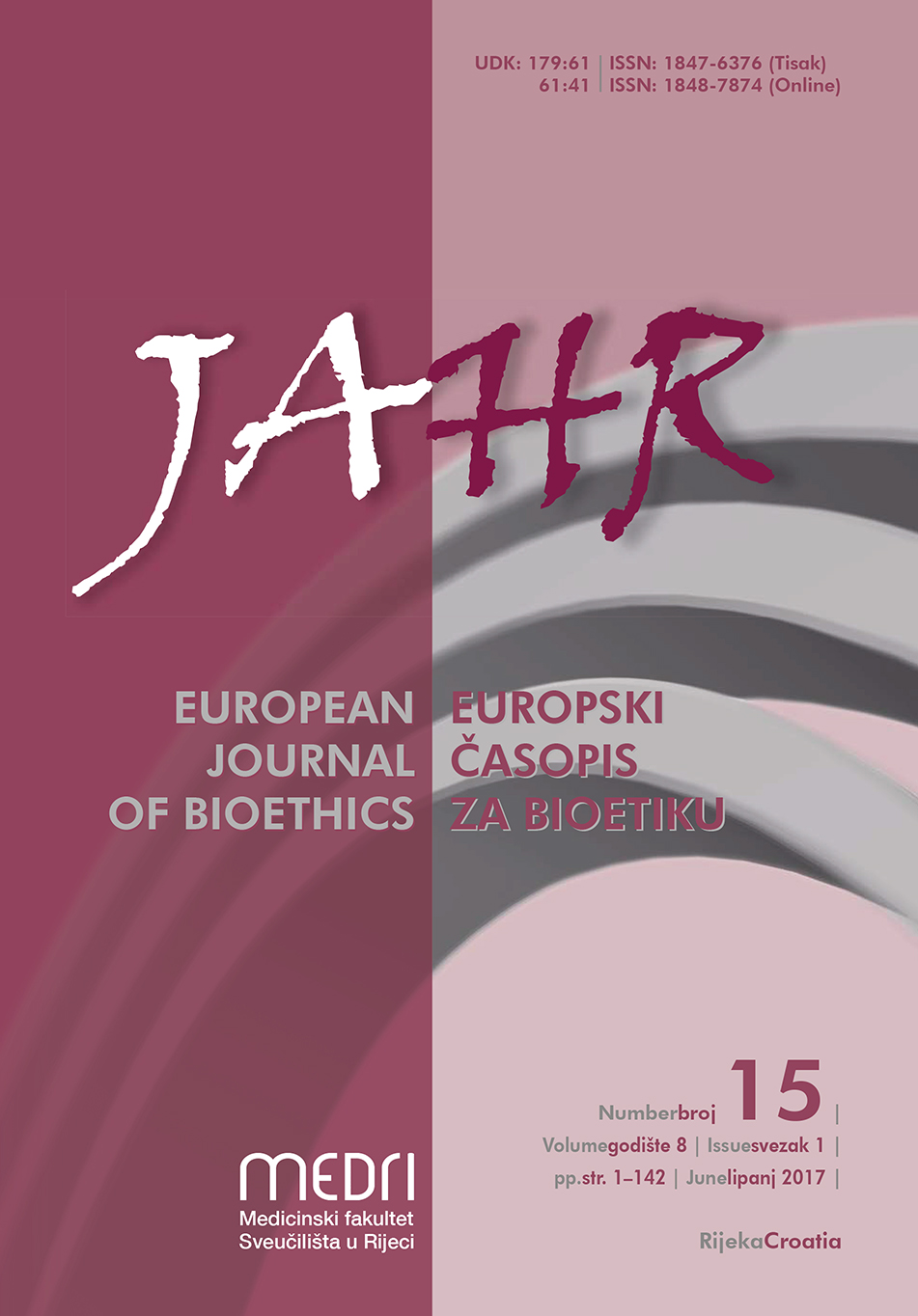Uvod u holistički environmentalizam
Keywords:
holistički environmentalizam, materijalni okoliš, duhovni okoliš, dobrohot‑nost, razumijevanje okolišaAbstract
Holistic environmentalism is a holistic consideration of the material (nature) and spiritual (world) environment. Its essence is to promote amicability in human relations to other beings. Research area of holistic environmentalism is located within integrative bioethics. A holistic approach to the environment, typical of the holistic environmentalism, explores the opportunities and sets the models of the amicable coexistence of the beings on Earth. It does not deal only with environmental protection, but also with an understanding of the environment. Understanding of the material and the spiritual environment goes far beyond of what is wrongly called environmental protection. To understand the material environment means not destroying habitats, not impairing the quality of air, water, and soil, not reaching out for the irreversible destruction, not showing off with intelligence, not breaking and reshaping everything we are capable of breaking and reshaping. To understand the spiritual environment means to be benevolent, to realize equality, fraternity, liberty, unity, and justice as a model of meaningful and creative living.
Downloads
Published
Issue
Section
License
Authors who publish with this journal agree to the following terms:
- Authors retain copyright and grant the journal right of first publication with the work simultaneously licensed under a Creative Commons Attribution License that allows others to share the work with an acknowledgement of the work's authorship and initial publication in this journal.
- Authors are able to enter into separate, additional contractual arrangements for the non-exclusive distribution of the journal's published version of the work (e.g., post it to an institutional repository or publish it in a book), with an acknowledgement of its initial publication in this journal.
- Authors are permitted and encouraged to post their work online (e.g., in institutional repositories or on their website) prior to and during the submission process, as it can lead to productive exchanges, as well as earlier and greater citation of published work (See The Effect of Open Access).



